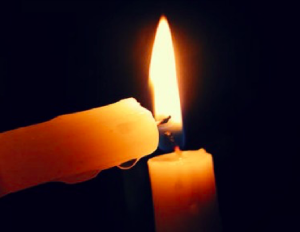“How did you decide to teach?” I am asked sometimes. Serendipity is the quick answer. I guest lectured at a friend’s class, loved the experience, and decided I wanted more.
That was more than decade ago. Why have I continued, what have I learned, and why am I even more passionate about teaching today? Let me tell you my story of discovery and finding a passion I did not know I had.
During that guest lecture, my focus was on not letting my friend down. Perhaps it was on not failing and looking like an ass. I worked on my presentation for several weeks making sure that each slide was picture perfect. The presenting part comes easily to me as does answering questions. So, when the students applauded, I beamed. I had not let my friend down, and the students had liked me. I had done well.
When I started teaching my own class, I combined a fair bit of lecturing with a dollop of student participation. I expected much from my students and they rose to the occasion. At the end of the quarter, I begged them to be honest in their teacher evaluations, so I could decide whether I should continue to teach or not. I held my breath; they gave me high ratings and urged me to continue. I heaved a sigh of relief. Mission accomplished. I had done a good jobs.
A few years later, a friend suggested I use “cases” in my classes. I took a Harvard class on how to teach such cases. I was astounded to learn that most class lectures are forgotten in a few days. But when people participate in the conversation– as the case discussion necessitates – the learning may last for a few months, and sometimes for a lifetime.
Concurrently, I read Education for Judgment, and the two articles by C. Roland Christensen – perhaps the best teacher of the case method – brought tears to my eyes. I realized that teaching was not about how hard the students worked, or how brilliant my presentations and lectures were. Rather, it was about what the students learned. And, the more they participated, the more they learned. Everything had to be about the students and their learning.
This process also brought me closer to the students. I make myself readily available outside of the classroom. They have many questions, but they are rarely related to what is discussed in class. They want to talk about their lives, their aspirations, their fears, their highs, and their lows. I even hear from them after graduation. Without meaning to, I had become a mentor.
Then, I learned something new. Many of these students, who were superstars in high school, now start seeing themselves as average, because every one else seems smarter. They focus on all the things that they are not good at, rather than on the many things they are exceptional at. This, then, has become my new focus: helping them embrace the great gifts that they have been endowed with. All human beings have a need to be believed in. Sometimes they need more than mentoring. They need a helping hand to light their inner candle. It is said that a candle is not diminished when it lights other candles.
So, go beyond mentoring, my friends. Light candles. Other people’s candles. In all walks of life.

What do you think? I welcome your thoughts.
Verinder Syal, author: Discover The Entrepreneur Within, now also available in an audio version.